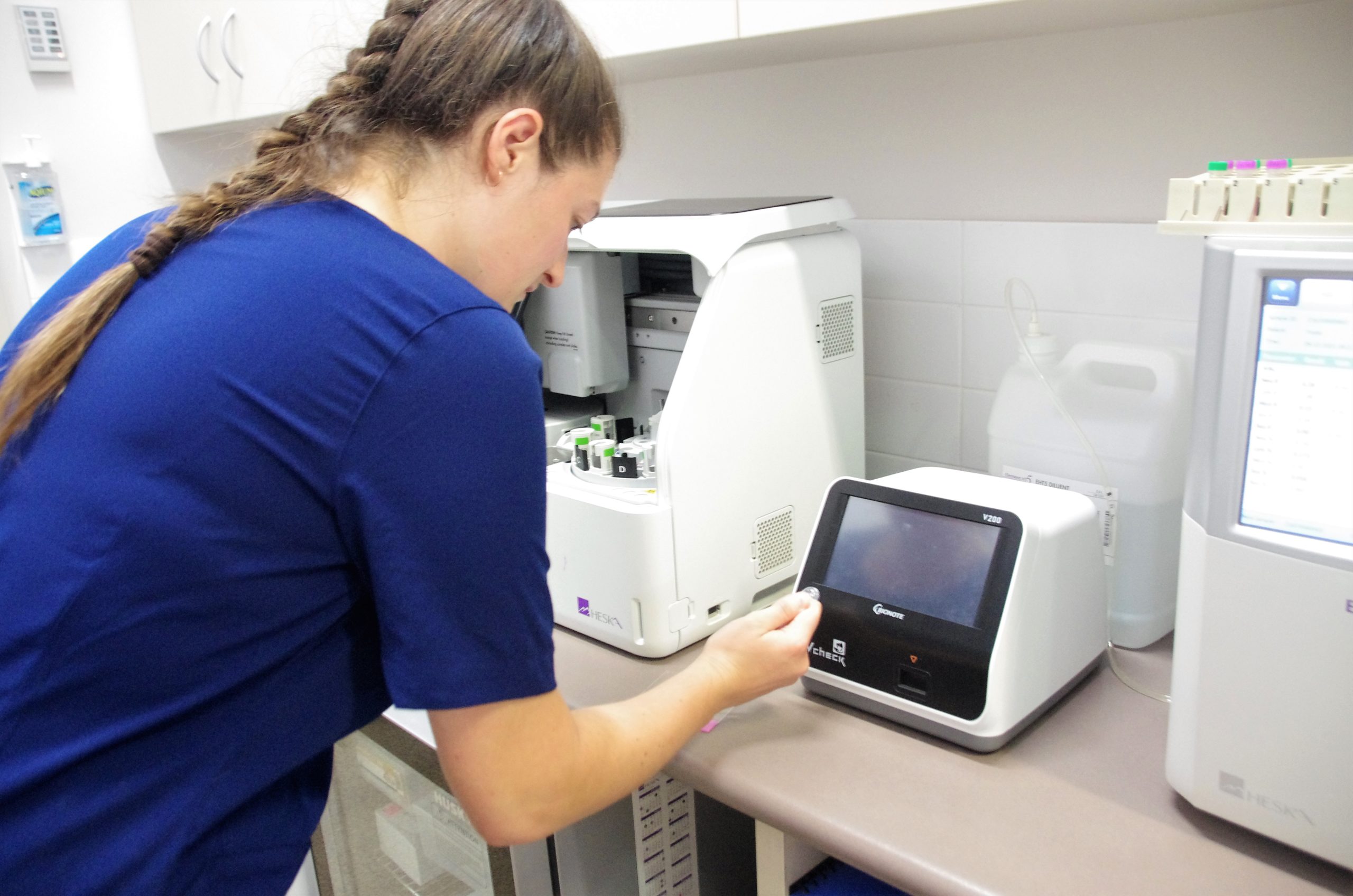Busselton Vet Hospital
Pet Blood Testing & In-House Laboratory
Learn more about our pet blood testing & in-house laboratory services below.
state-of-the-art
Pet Blood Testing & In-House Laboratory
Our hospital has a dedicated laboratory area where we perform blood testing and investigate a variety of samples.
The main reasons why we run blood tests are sickness, wellness screens, pre-anaesthetic screens, geriatric screens and to monitor chronic conditions.
Our in-house laboratory facilities allow us to run tests for: hematology, biochemistry, electrolytes, hormonal assays, urinalysis, and parasites. We also utilise commercial veterinary laboratories for specialised diagnostics and consultations.
Why we run blood tests
Sickness: in order to assist in the diagnosis of disease and help us provide the best targeted treatment to our patients.
Wellness screens: why wait until our pets look sick, by regular testing we can get early warning of when organs are starting to fail.
Pre-anaesthetic screens: these are run before any animal has a general anaesthetic or sedation to ensure the procedure is as safe as possible.
Geriatric screens: The older our patients are, the greater the risk they have of developing degenerative diseases. It is really common for us humans to miss the early signs of disease in our older pets. Identifying changes earlier by using blood tests, means that we are much more likely to be able to manage or treat conditions and earn our furry friends more happy months or even years of life.
Chronic conditions: monitoring blood work for existing conditions in order to assess the effectiveness of the treatment as well as identify any progression in the disease or any possible side-effects from the medication. Animals with diabetes, Cushings, thyroid problems and animals on long-term medications are examples of patients who need to have regular blood tests.
HELSKA technology lab tests
We use HESKA technology and are able to perform most routine blood testing including:
Complete Blood Counts (CBC): quantifies red blood cells, white blood cells and platelets as well as other blood cell parameters.
Biochemistry: glucose, protein, renal pancreatic and liver markers and more
Electrolytes: measuring blood salts and their proportions.
Urinalysis: testing urine samples for blood, protein, glucose etc which may indicate inflammation and/or infection.
As well as more specific tests such as:
Cortisol levels – for diagnostic and monitoring of Cushing’s and Addison’s diseases.
Total T4 – one thyroid hormone test for hypothyroidism and also hyperthyroidism.
Coagulation tests: to evaluate the blood clotting ability of a patient and most commonly used for rodenticide toxicity (e.g. rat sac) and snake bites, as well as other coagulation disorders.
Screening tests for Feline Immunodeficiency Virus(FIV), Feline Leukaemia Virus (FeLV), Canine Heartworm disease, Canine Parvovirus, and Canine Corona virus infections.
Microscopy: Our laboratory standard microscope is used to examine blood smears for any changes to the cells, and to indicate possible toxins and blood parasites (ie. heartworm) affecting the blood.
Ear swabs, skin scrapes or impression smears: for bacteria/fungi/mite identification.
Nose, eye, and any other discharge: for bacteria/fungi/inflammatory cells.
Vaginal swabs: to determine the stage of a bitch’s heat.
Urine sediments and cytology: for blood cells, bacteria, crystals.
Faecal analysis: for bacteria, parasites, worm eggs, inflammatory cells.
Fine needle aspirates to assist the diagnosis of the cell-type present in any mass or lump prior to surgical planning.

